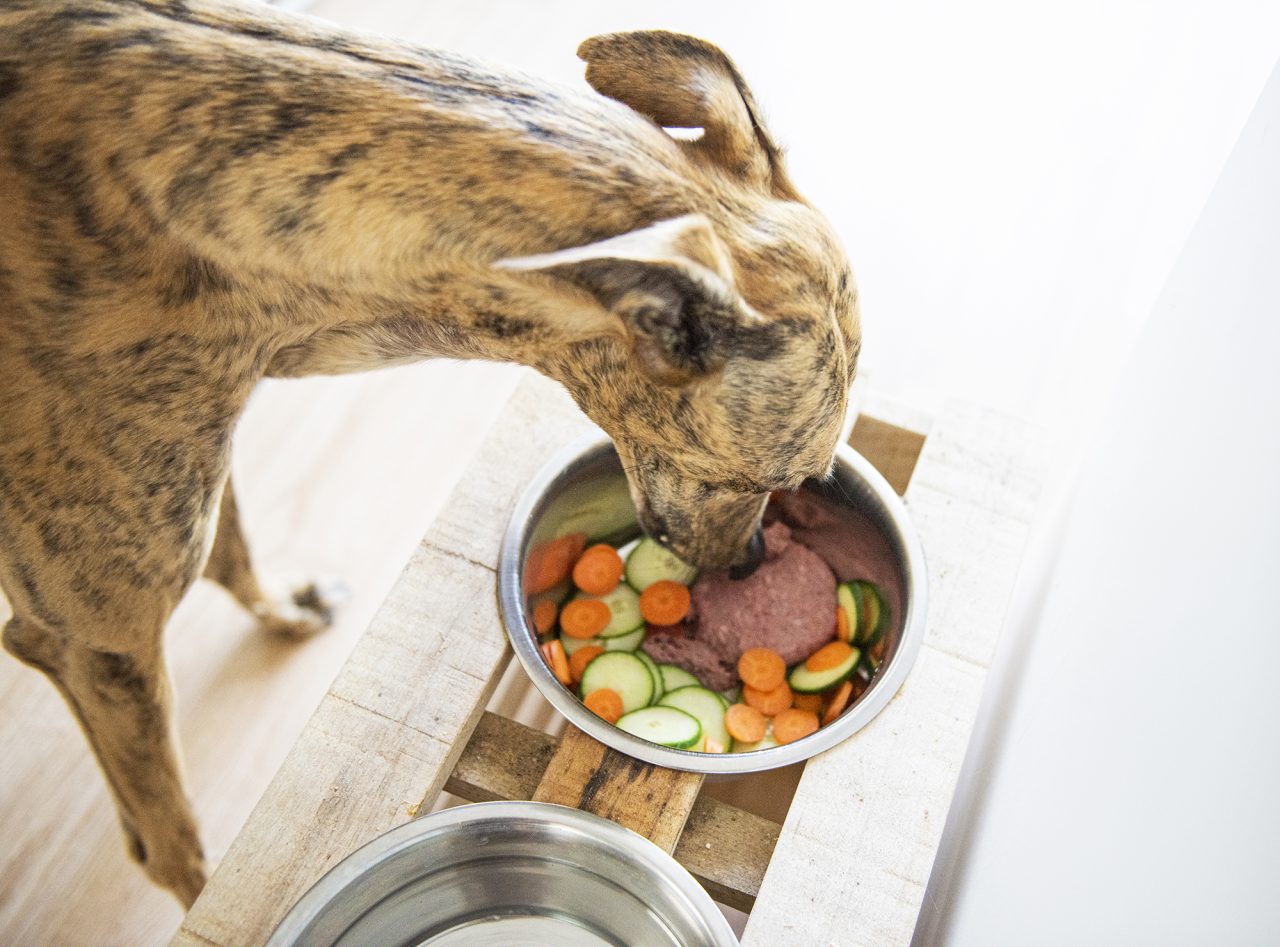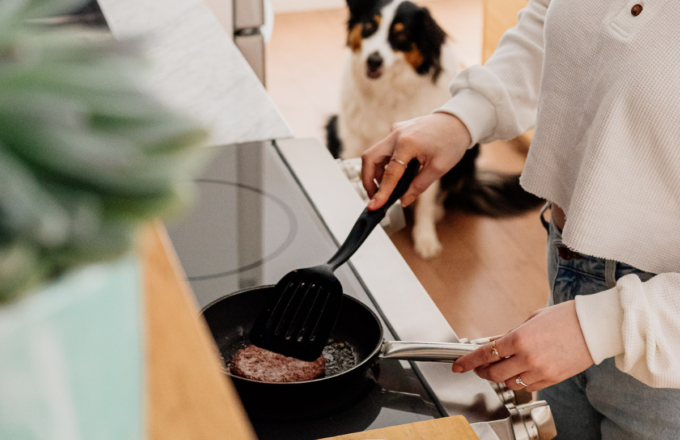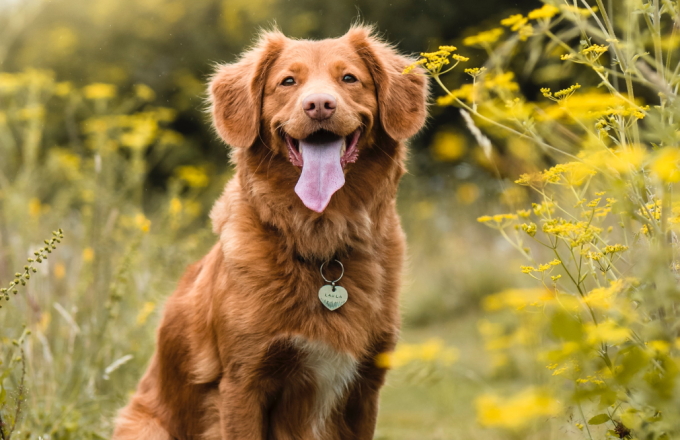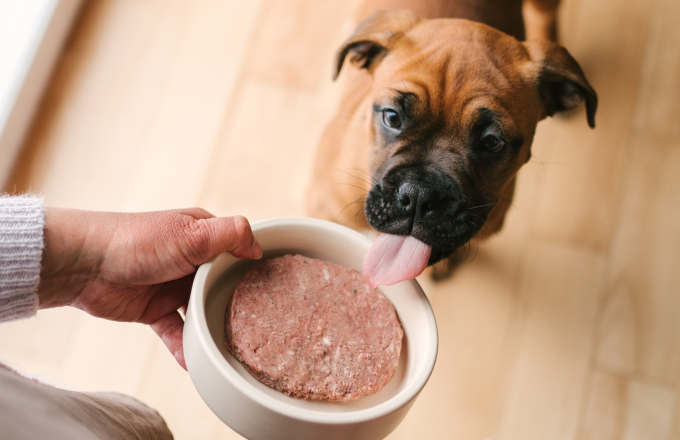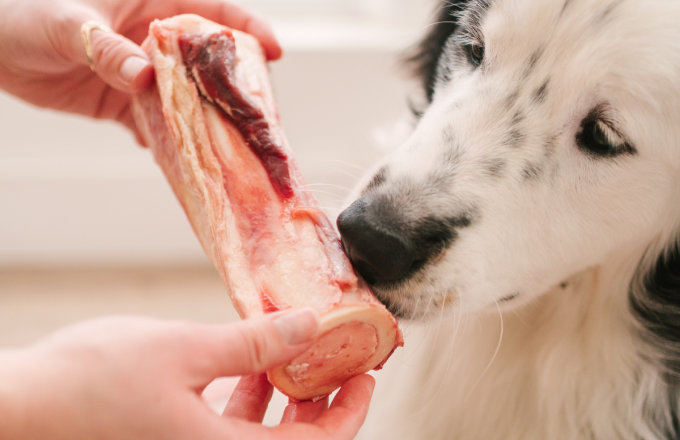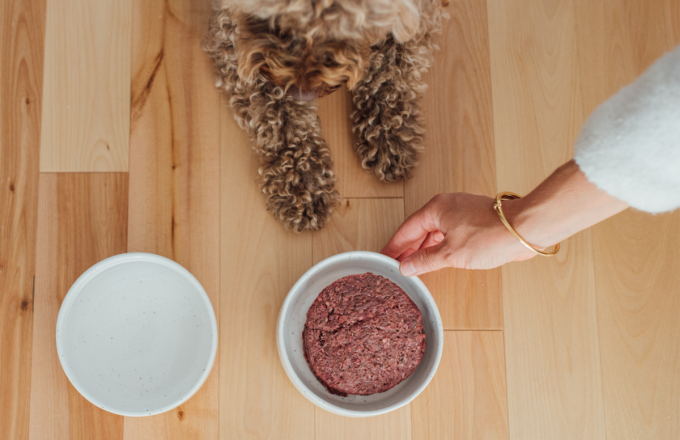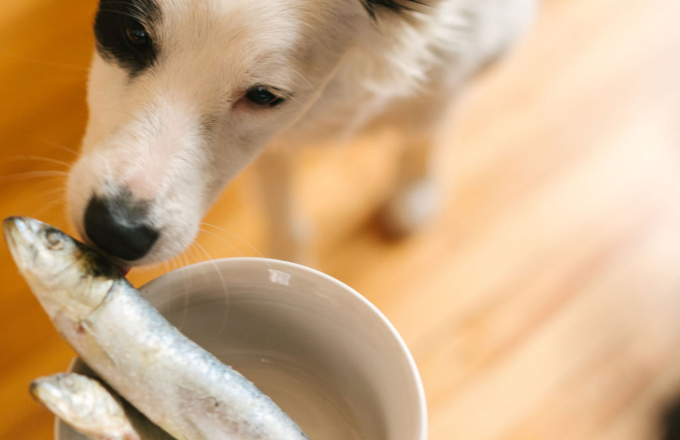Why should you rotate your dog’s protein source?
Have you ever been forced to eat the same thing for a whole week? Or a month? Or even a year? If you had to eat the same thing all the time, you’d probably develop nutritional deficiencies too.
Yet, we offer the same meal to our pets everyday.
Like us, our four-legged friends deserve a little variety. Beef, chicken, duck, or turkey… Not only is it great for them to experience several textures and flavours, it’s also amazing for their health! Let us explain…
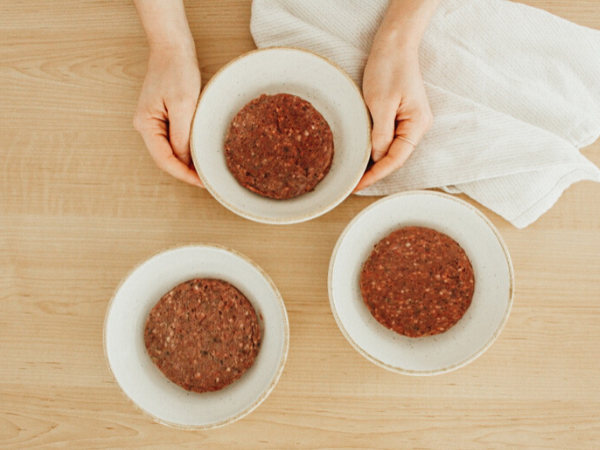
For better digestion
By feeding your dog different proteins, you’re creating a balance in their microbiome and you’re exposing their intestinal flora to more foods—which helps with digesting nutrients efficiently(1). The result: better digestive health, a stronger immune system, and improved general wellbeing.
For a balanced diet
All meat has its own nutritional profile. The quantity of amino acids, vitamins, minerals, and fatty acids is different in every protein. For example, the nutritional composition of chicken is not the same as that of beef or duck, meaning your animal gets a unique set of nutrients from every protein. By alternating between two or three proteins, your dog benefits from a huge range of nutrients.
To avoid food sensitivities
Many food allergies and intolerances are attributed to repeated and continuous exposure to food. Over time, if you always offer your dog the same protein, your dog is likely to become sensitive to this ingredient and develop a negative immune response(2). To avoid this, it’s best to regularly switch up your dog’s protein, ideally every two or three months—or more often if your routine allows it.
You’ll often hear about the importance of providing food that’s biologically adapted to a species. In the wild, dogs eat a variety of prey and vegetables based on the season. By rotating your pet’s proteins, you’re respecting this universal golden rule!
Sources :
(1) BECKER, Karen, TAYLOR, Beth, Real Food For Healthy Dogs & Cats, Fourth Edition, Illinois, 2017
(2) Mercola Healthy Pets, (2010, 03, 31), Food Allergies and Your Pet [Youtube]

